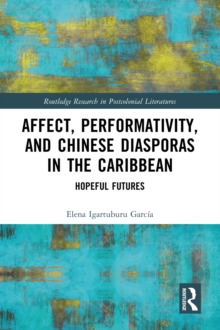
Marxism, Postcolonial Theory, and the Future of Critique : Critical Engagements with Benita Parry PDF
Edited by Sharae Deckard, Rashmi Varma
Part of the Routledge Research in Postcolonial Literatures series
Description
Using the aesthetic and political concerns of Parry’s oeuvre as a touchstone, this book explores new directions for postcolonial studies, Marxist literary criticism, and world literature in the contemporary moment, seeking to re-imagine the field, and alongside it, new possibilities for left critique.
It is the first volume of essays focusing on the field-defining intellectual legacy of the literary scholar Benita Parry.
As a leading critic of the post-structuralist turn within postcolonial studies, Parry has not only brought Marxism and postcolonial theory into a productive, albeit tense, dialogue, but has reinvigorated the field by bringing critical questions of resistance and struggle to bear on aesthetic forms.
The book’s aim is two-fold: first, to evaluate Parry’s formative influence within postcolonial studies and its interface with Marxist literary criticism, and second, to explore new terrains of scholarship opened up by Parry’s work.
It provides a critical overview of Parry’s key interventions, such as her contributions to colonial discourse theory; her debate with Spivak on subaltern consciousness and representation; her critique of post-apartheid reconciliation and neoliberalism in South Africa; her materialist critique of writers such as Kipling, Conrad, and Salih; her work on liberation theory, resistance, and radical agency; as well as more recent work on the aesthetics of "peripheral modernity." The volume contains cutting-edge work on peripheral aesthetics, the world-literary system, critiques of global capitalism and capitalist modernity, and the resurgence of Marxism, communism, and liberation theory by a range of established and new scholars who represent a dissident and new school of thought within postcolonial studies more generally.
It concludes with the first-ever detailed interview with Benita Parry about her activism, political commitments, and her life and work as a scholar.
Information
-
Download - Immediately Available
- Format:PDF
- Pages:306 pages
- Publisher:Taylor & Francis Ltd
- Publication Date:13/09/2018
- Category:
- ISBN:9781317287803
Information
-
Download - Immediately Available
- Format:PDF
- Pages:306 pages
- Publisher:Taylor & Francis Ltd
- Publication Date:13/09/2018
- Category:
- ISBN:9781317287803










